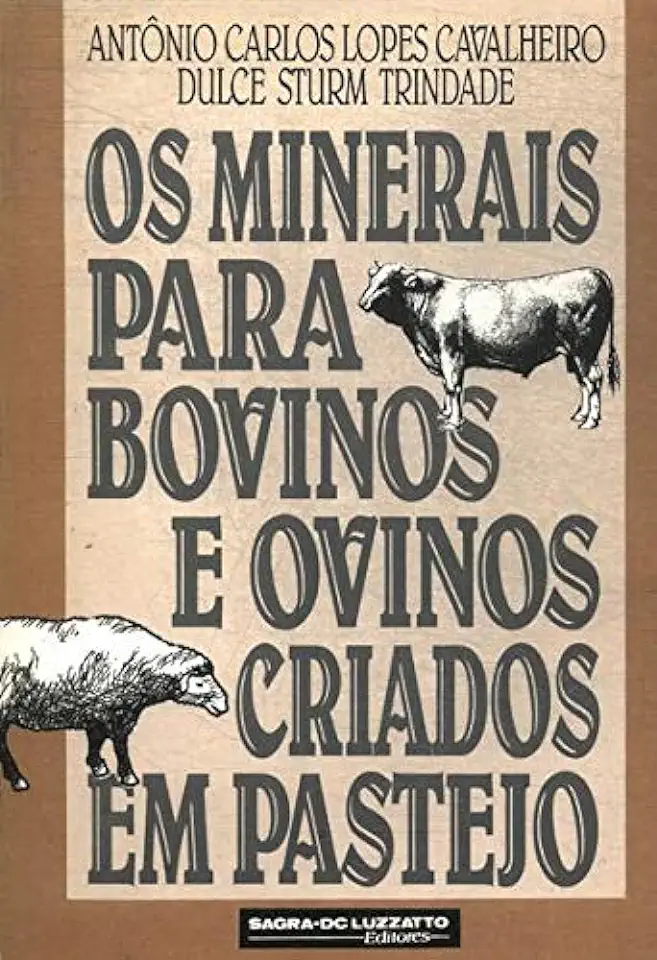
Minerals for Cattle and Sheep Raised on Pasture - Antônio Carlos Lopes Cavalheiro /Dulce Trindade
Minerals for Cattle and Sheep Raised on Pasture
A Comprehensive Guide to Mineral Nutrition for Optimal Livestock Production
In the realm of livestock farming, achieving optimal animal health and productivity hinges on a multitude of factors, with mineral nutrition playing a pivotal role. Minerals, though required in relatively small quantities compared to other nutrients, are indispensable for a myriad of physiological processes, including bone formation, muscle function, enzyme activity, and immune system regulation.
Understanding Mineral Deficiencies and Their Consequences
Grazing animals, such as cattle and sheep, primarily obtain their mineral requirements from the plants they consume. However, pasture-based diets can often be deficient in certain essential minerals, leading to a range of health issues and reduced productivity.
Key Minerals for Cattle and Sheep
This comprehensive guide delves into the specific mineral requirements of cattle and sheep, highlighting the significance of each mineral and the potential consequences of deficiencies.
Calcium and Phosphorus: The Building Blocks of Strong Bones
Calcium and phosphorus are crucial for bone formation and maintenance, with deficiencies leading to skeletal abnormalities, lameness, and reduced growth.
Magnesium: A Multifaceted Mineral
Magnesium plays a vital role in energy metabolism, muscle function, and nerve transmission. Deficiencies can result in grass tetany, a potentially fatal condition characterized by muscle spasms and convulsions.
Sodium and Potassium: Maintaining Electrolyte Balance
Sodium and potassium are essential for maintaining proper fluid balance and electrolyte concentrations within the body. Deficiencies can lead to dehydration, reduced feed intake, and impaired performance.
Trace Minerals: Essential in Small Quantities
Trace minerals, such as copper, zinc, selenium, and iodine, are required in minute amounts but are nonetheless critical for various metabolic processes. Deficiencies can cause a range of health problems, including anemia, impaired immune function, and reproductive disorders.
Balancing Mineral Nutrition: A Delicate Art
Achieving the right balance of minerals is crucial for optimal livestock health. This guide provides practical strategies for formulating mineral supplements that meet the specific requirements of cattle and sheep based on their age, breed, and pasture conditions.
Case Studies and Real-World Examples
To illustrate the practical application of mineral nutrition principles, the book presents real-world case studies and examples of successful mineral management practices in cattle and sheep operations.
Conclusion: Investing in Mineral Nutrition Pays Off
By investing in mineral nutrition, livestock producers can reap the rewards of improved animal health, increased productivity, and enhanced profitability. This comprehensive guide serves as an invaluable resource for farmers, ranchers, veterinarians, and anyone involved in the livestock industry, empowering them to make informed decisions about mineral supplementation and optimize the performance of their cattle and sheep.
Enjoyed the summary? Discover all the details and take your reading to the next level — [click here to view the book on Amazon!]